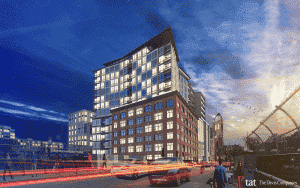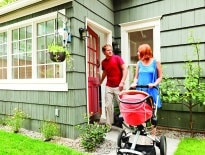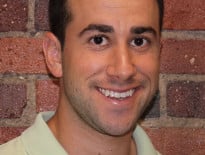
Because its 100 Shawmut building won’t include affordable units, The Davis Cos. paid $15 million up-front to the Chinese Consolidated Benevolent Association to support a 285-unit housing project at 50 Herald St. that could include at least 26 percent affordable units. Image courtesy of The Architecture Team and The Davis Cos.
It’s been 35 years since 50 Herald St. was designated as a preferred spot for affordable housing in Boston’s South End, part of a community benefits agreement tied to expansion of New England Medical Center and Tufts University.
An Asian supermarket – but not a single residence – occupied the property for most of the ensuing years, while the surrounding neighborhood filled up with high-end condominiums that fueled gentrification and displacement.
Now, a joint effort by developer The Davis Cos. of Boston and two community groups is pushing the affordable requirement toward the finish line. A 139-unit luxury condo complex will subsidize construction of up to 313 housing units next door, including at least 26 percent income-restricted units. And the 660,000-square-foot development will enable the Boston Chinese Evangelical Church to expand its programs for immigrants, while adding up to 84 residential units on its own property.
“The pressure is on because of the lack of adequate affordable housing for community members,” said Paul Chan, a longtime affordable housing specialist who was named president of the Chinese Consolidated Benevolent Association of New England (CCBA) in 2016.
The CCBA, an umbrella organization for 35 Chinese community groups, came under scrutiny from some members and former Massachusetts Attorney General Thomas Reilly for failing to develop housing on the Herald Street property, which it was gifted in 1983. Scarcity of government housing subsidies prompted the group to lease the property for retail uses, Chan said, with C-Mart signing a 20-year lease in 1993.
Prospects for housing development improved in 2012, as new higher-density zoning for the Harrison Avenue-Albany Street corridor encouraged rundown properties to be replaced with high-end housing and retail such as National Development’s Ink Block.
Enter Davis Cos., which acquired a six-story office building at 112 Shawmut Ave. in 2015 for $26 million and began talking with owners of neighboring properties.
Brian Fallon, Davis Cos.’ president of development, knew Chan from his work in local real estate and met Steven Chin, pastor of the evangelical church, which operates religious and educational programs out of a former nursing home at 120 Shawmut Ave.
Davis Cos. paid for the two groups’ predevelopment costs, and the three parties submitted a development plan for all three parcels spanning nearly 2 acres.
That enabled developers to pursue city approvals under a planned development area overlay district, allowing greater density, Chan noted. The strategy was critical to maximizing the potential of the 50 Herald St. site, which otherwise would have been limited to approximately 120 units, he said.

Steve Adams
Luxury Units Subsidize Affordability Next-Door
Davis Cos. will build 139 market-rate condos in a 13-story tower totaling 192,600 square feet at 112 Shawmut St. It’s targeting what appears to be the “mid-luxury” segment of the Boston condo market, which is considered a sweet spot in the current market.
“We like our timing for the for-sale product,” Fallon said. “Boston has been a market where $1,400 a foot is a value proposition compared with One Dalton, EchelonSeaport and Pierce Boston.”
112 Shawmut St. will help subsidize a large affordable component in a nine-story tower developed by the CCBA at 50 Herald St., comprising at least 26 percent of the estimated 313 housing units.
Boston’s inclusionary development policy requires developers to set aside 13 percent affordable units in multifamily projects or pay a “cash-out” fee ranging up to $380,000 per unit to developers that are building affordable housing in the surrounding neighborhood. Davis Cos. designated the CCBA building as recipient, which will form a piece of its financing package along with anticipated local incentives and tax credits.
And the Chinese Evangelical Church will get a “significant upgrade” over its current facility at 120 Shawmut Ave., Fallon said. Its weighing whether to renovate and expand the existing building or build a new 12-story structure that would include two sanctuaries with capacity for over 1,100 members, along with recreational space and classrooms for its language, job training and citizenship classes.
The upgrades to the church property would include 84 residential units on the upper floors. The group is considering a joint venture with a residential developer, Fallon said, to move the project forward.
“It has taken a long time for the opportunity to evolve, and I think we’ve been helpful to both of our abutters to envision the plans and help them secure the zoning which will allow their projects to be developed,” he said.






